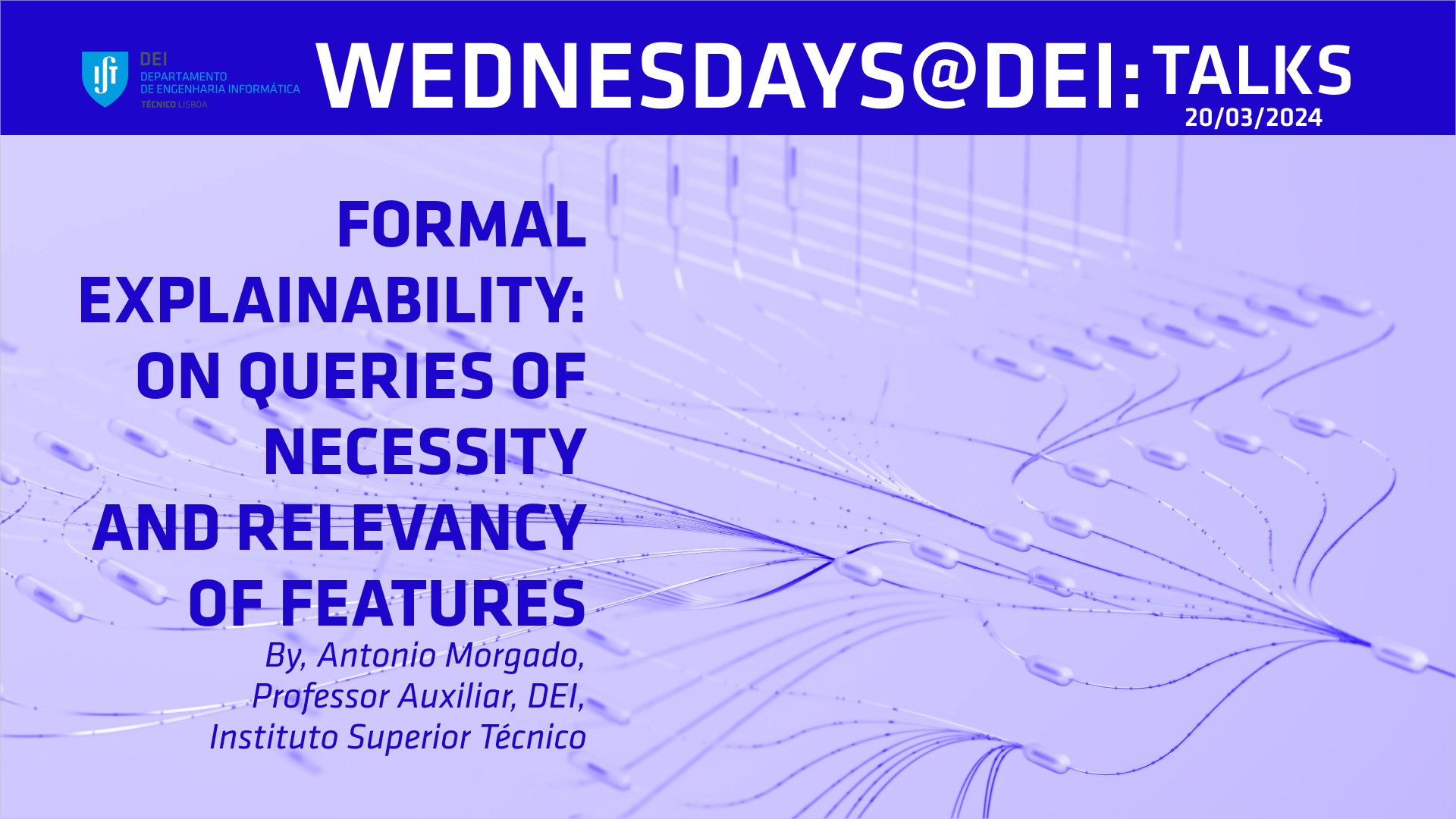Wednesdays@DEI: Talks, 20-03-2024

Autor e vínculos: Antonio Morgado, Professor Auxiliar, Departamento de Engenharia Informática, Instituto Superior Técnico
Bio: Antonio Morgado graduated in ”Matemática Aplicada e Computação” in 2002 from Instituto Superior Técnico, University of Lisbon, and obtained a Master’s degree in ”Engenharia Informática e de Computadores” in 2006 from the same institution. In 2011, he completed his PhD in Computer Science & Informatics at University College Dublin, Ireland.
Since the completion of his PhD, Antonio Morgado has been working as a Post-doc in several research projects. The main focus of his research has been the study of algorithms for analyzing over constrained systems both in terms of providing explanations of inconsistencies, and of computing relaxations for achieving consistency. Recently, Antonio Morgado began to look at problems of (Formal) Explainable Artificial Intelligence.
Antonio Morgado is currently an Assistant Professor at DEI, Instituto Superior T ́ecnico, University of Lisbon, and an Integrated Researcher at INESC-ID at the Automated Reasoning and Software Reliability group.
Título: Formal Explainability: On Queries of Necessity and Relevancy of Features
Abstract: In this presentation, I will provide an overview of my research path, followed by an exposition of a work in which I participated last year concerning explanations of machine learning (ML) classifier models. Explaining a ML model involves identifying sets of features that sufficiently contribute to a prediction. In certain contexts, beyond mere explanation, it becomes imperative to ascertain whether sensitive features may feature in an explanation or whether an unimportant feature must consistently appear in all explanations. Such issues correspond respectively to the queries of relevance and necessity within logic-based abduction. Our research establishes both membership and hardness complexity results for two families of ML classifiers, and introduces concrete algorithms tailored to specific classes of classifiers.
